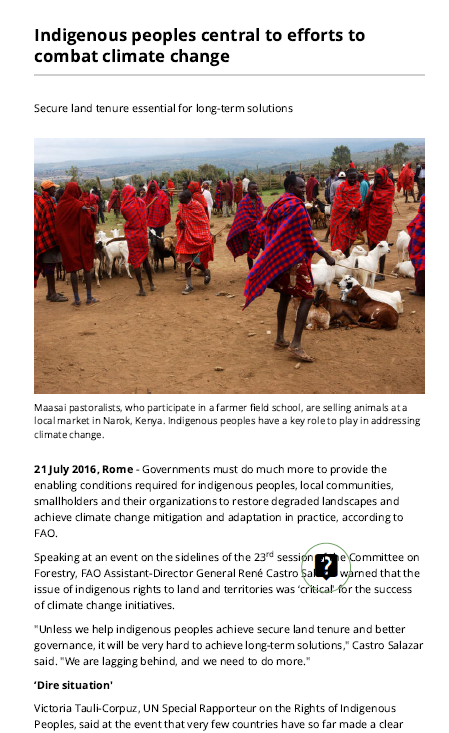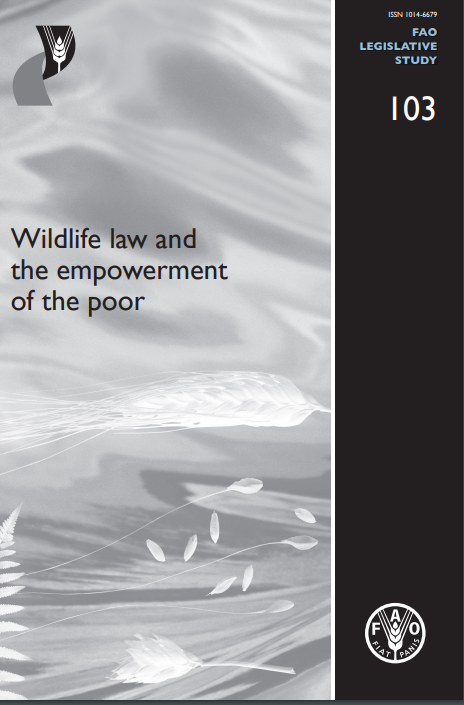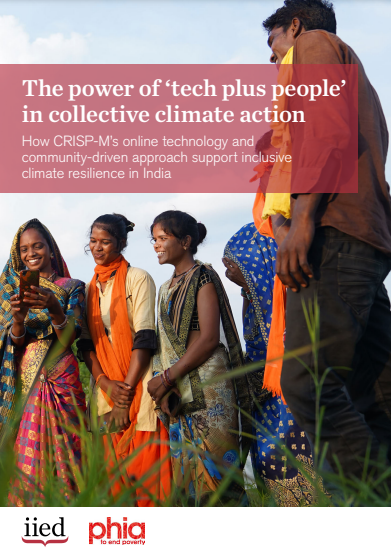Knowledge Hub
Ecological Farming: The Seven Principles of a Food System that has People at its Heart
2015
Author(s): Tirado R, Greenpeace Research Laboratories, University of Exeter
Ecological Farming provides a balanced approach between optimising ecosystem services and food production.Ecological Farming aims to protect water resources, and use them more effectively, through better and more efficient irrigation and choosing appropriate crops.

Indigenous Peoples Central to Efforts to Combat Climate Change
2016
Author(s): Food and Agriculture Organization of the United Nations
Governments must do much more to provide the enabling conditions required for indigenous peoples, local communities, smallholders and their organizations to restore degraded landscapes and achieve climate change mitigation and adaptation in practice, according to FAO.

Indigenous Women Entrepreneurs in Papua GET Ahead
2011
Author(s): International Labour Organization
Like many other women who live in a patriarchal society, the indigenous women of Papua do not have many opportunities to take part in the development process. Their traditionally low status in the tribal hierarchy and poor education make them second-class members of society who have to occupy themselves with food and children, and serve their husbands.
Technical and Socio-economic Characteristics of Small-scale Coastal Fishing Communities, and Opportunities for Poverty Alleviation and Empowerment
2016
Author(s): Tietze U
The document provides an overview of the situation that small-scale fishers in developing countries face in terms of: financial and economic performance of fishery enterprises; vulnerabilities and poverty; adaptations to a changing environment including, climate variability and change; and access to technology, infrastructure, financial services and social protection schemes.
A Better Balance: Revitalized Pastoral Livelihoods in Karamoja, Uganda
2016
Author(s): Stites E, Howe K, Redda T, Akabwai D
This report reviews the state of animal-based livelihoods in the Karamoja region of northeastern Uganda and examines how animal ownership affects a household’s ability to weather shocks.

This study is a guide for those looking to improve national wildlife laws with a view to ensuring environmental sustainability and strengthening the role of disadvantaged people and increasing their participation in the sharing of benefits.Wildlife management is the process of keeping populations, wildlife including endangered species, at desirable levels using scientific, technical and traditional knowledge.
Globally Important Agricultural Heritage Systems (GIAHS). Combining Agricultural Biodiversity, Resilient Ecosystems, Traditional Farming Practices and Cultural Identity
2018
Author(s): Food and Agriculture Organization of the United Nations (FAO)
Traditional agricultural systems are extremely important for sustaining livelihoods,maintaining rural communities,preserving knowledge,and protecting fragile landscapes and agrobiodiversity. This knowledge offers examples of high resilience and precious agroecological techniques that can help agriculture adapt to ever-changing social, environmental and economic conditions.

The Power of ‘Tech Plus People’ in Collective Climate Action :How CRISP-M’s Online Technology and Community-Driven Approach Support Inclusive Climate Resilience in India
2022
Author(s): Bharadwaj R, Abhilashi R, Kaur D, Kumar A
These 12 case studies demonstrate how our ‘tech plus people’ approach is supporting bottom-up, village-level climate resilience planning that includes the most marginalised groups. Together, these examples offer emerging lessons and trends that can inform plans to scale up climate tech in India and beyond.
Regional Consultation of Asia and the Pacific on the Implementation of Indigenous Peoples & Peasants’ Rights to Plant Genetic Resources for Food & Agriculture
2018
Author(s): International Planning Committee for Food Sovereignty
In this document, ‘farmers’ includes those who produce and/or use seeds in both industrial and cultural seed systems in line with Article 9 on Farmers’ Rights in the Seed Treaty. The custodians of cultural seed systems are referred to as ‘indigenous peoples and peasants’, and more broadly also include smallholders, artisanal fisherfolk, pastoralists, forest dwellers, women and all the communities that produce food in agroecological ways and contribute to maintaining biodiversity.

North Australian Remote BNH Training : Training Manual
2021
Author(s): Bush Fire and Natural Hazards CRC
This project aims to provide a ‘next-generation’ training program that builds on the work that has gone before and leads to increasing levels of competence and confidence and, in its turn, resilience for their communities. The project is a direct response to north Australian stakeholder concerns about existing training; that it is inadequate for their needs.



